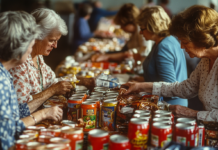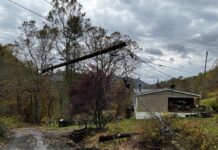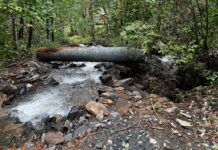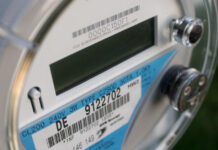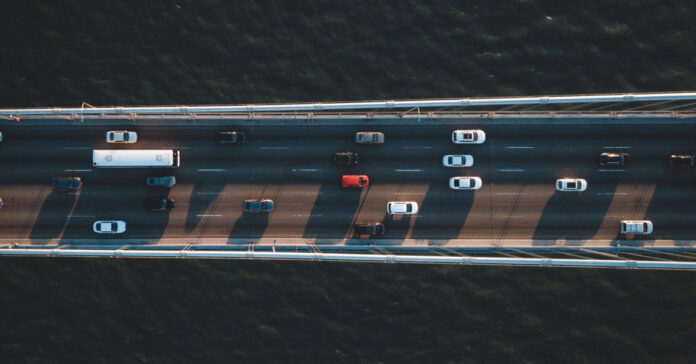
The disruption of traffic over the Kerch Bridge connecting Crimea and Russia, according to this article, is causing some problems for Russia’s military. Here’s a quote:
“The Russian field armies in and around the port of Kherson on Ukraine’s temporarily-occupied Black Sea coast are in trouble. They were struggling with resupply before the Ukrainians blew up the Kerch Bridge, twisting its twin rail lines and dropping one of its two road lanes. Now the struggle will get worse.”
Anyone who has watched a movie about WWII in Europe knows blowing bridges can play an important role in stopping an enemy force from advancing. What we may not think about as preppers is how important bridges and other avenues of access are for transportation and commerce. Think about how the destruction of a few key access points might affect your region, city, or even your property.
For example, there is only one way to our prepper property, and it’s a five-mile road. If any of the bridges or part of the road get washed away, we’re stuck here for the duration without easy resupply. The flip side is that if the people that live along this five-mile road defend it, the so-called Golden Horde cannot overrun us. That also means we have no way to retreat other than our feet.
Rivers and Bridges
Imagine living in Manhattan, which I once did. Access for most is by bridge, tunnel and rail, and for a few by ferry or helicopter. If the government or any other entity wanted to control access to or from New York City, it would be relatively easy to do so. These are also choke points in an evacuation. Rush hour traffic is already terrible; trying to get residents as well as commuters out would be impossible.
If any of these access points were destroyed, it would be difficult for sufficient food and fuel supplies to get into the city. That would have repercussion for Long Island, too. Millions of people would be affected because one bridge or tunnel was taken out. Now imagine if three or four were destroyed. It would quickly become an ugly survival situation.
Choke Points and Access Routes
Cities developed on rivers or at the junction of rivers because they provided easy transport. The result is many cities have critical bridges. Terrorists could wreak havoc in these cities by shutting down a few key bridges and blowing some train tracks.
Crossing rivers doesn’t take place only in cities of course, and the interstates highways are littered with bridges. We may think of major rivers like those the Ohio, the Mississippi, or the Colorado, but even smaller rivers often require expensive bridges that can take years to build. Trains also must cross rivers, usually on their own dedicated bridges.
Crossing mountain ranges requires highways that go through mountain passes. The flow of goods stops when flooding, blizzards, or rockslides take out a bridge or block a mountain pass. Trucks often have to drive hundreds of miles out of their way to get through. (We saw this in Canada last year when flooding wiped out parts of the only super highway that connects Eastern and Western Canada.) Those are natural events, but as the Russians are experiencing, it’s difficult to recover from a bombing.
Are you Prepped for that?
It’s easy to look at the food in your pantry and think, “I’m prepped for that.” But taking out a bridge or freight train tracks does far more than prevent food from reaching the store. Coal-fired electrical pants generate 22 percent of our electricity, more in some areas. That coal arrives by barge or train. Chlorine used by municipal water systems also arrives by train. How much do your utilities have on hand? Two or three weeks’ worth?
How long can your pharmacy fulfill prescriptions without resupply? How long will it take for medical care at the local hospitals to deteriorate without a constant flow of supplies? Will you remain employed if there is no way to get goods in and out of your area? Is there enough gas in the local station’s storage tanks to keep you going?
We expect calamities that knock out utilities to be large events, like earthquakes or an EMP, but we don’t stop to think what could happen if trucks can’t get through. In 2007, the I-35 bridge over the Mississippi River collapsed in Minneapolis. (It took just over a year to build a new bridge.) Could that happen where you live? What happens if a landslide blocks the closest highway? What happens if the rail workers go on strike?
With any luck, none of us will see terrorists or enemy missiles take out our local infrastructure, but that doesn’t mean we won’t see it decay and collapse on its own. Bridges and roads in the U.S. are in awful shape and there’s never enough time or money to repair them all.
We might also have a weather event or other natural disaster that wipes away roadways and train tracks. Your prepping should include preparations for this kind of disruption as well as the larger, end-of-the-world scenarios.


